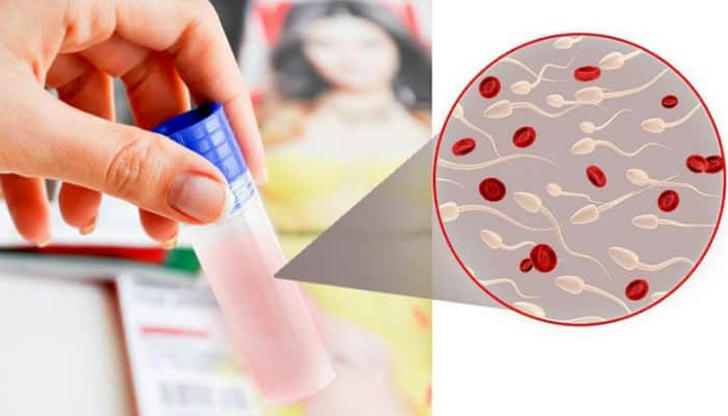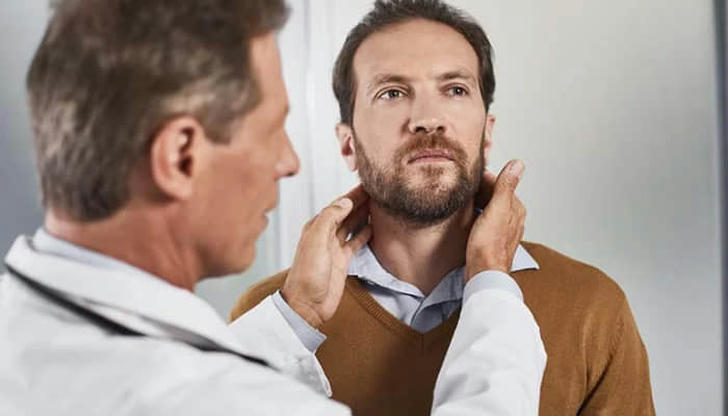8 Most Ignored Cancer Symptoms for Men
Advertisement

While many people are aware of general cancer symptoms like fatigue or weight loss, some signs specific to men often fly under the radar. This can be due to a variety of factors, including social stigma, lack of awareness, or simply not recognizing the potential seriousness of the symptoms. Here's a closer look at some of the most ignored cancer symptoms for men, along with why they shouldn't be dismissed:

- Changes in Testicular Size or Lump: The testicles, the male reproductive glands located within the scrotum, are susceptible to cancer. Testicular cancer is the most common cancer among young men (aged 15 to 35), but due to embarrassment or social stigma, men might hesitate to get any changes checked. Early detection is crucial for successful treatment, so any noticeable changes in the size, feel, or firmness of a testicle warrant a visit to a doctor. A painless lump or a dull ache in the scrotum can also be warning signs. Don't let fear or embarrassment prevent you from seeking medical attention – testicular cancer is highly treatable when caught early.

- Blood in Urine or Semen: Blood in any bodily fluid can be alarming, and blood in urine (hematuria) or semen (hematospermia) should never be ignored. While it can be caused by various conditions, including urinary tract infections or benign prostate enlargement, it can also be a symptom of prostate or bladder cancer. Ignoring blood in these fluids is a mistake, as early detection of these cancers significantly improves treatment outcomes. If you notice blood in your urine or semen, schedule a doctor's appointment to determine the cause and get the necessary tests.

- Urinary Problems: Difficulty starting or maintaining urination, a burning sensation during urination, or an increased frequency of urination (especially at night) can all be signs of underlying health issues. While these problems can be caused by benign conditions like urinary tract infections, they can also be symptoms of prostate cancer or other urologic malignancies. Don't dismiss these issues as a normal part of aging. Early diagnosis and treatment of prostate cancer can help maintain a good quality of life. If you experience any changes in your urinary habits, consult a doctor to get a proper diagnosis and discuss treatment options.

- Unusual Lumps or Bumps: Lumps anywhere on the body, especially in areas like the chest, neck, groin, or armpit, should be checked by a doctor. While they might not be cancerous, early detection is key for any potential malignancy. Men are particularly susceptible to certain cancers like testicular cancer (as mentioned earlier) or lymphomas, which can cause painless lumps in the lymph nodes. If you discover a lump that doesn't go away after a few weeks, don't hesitate to schedule a doctor's appointment. A simple examination and potentially some diagnostic tests can provide peace of mind or lead to a prompt diagnosis and treatment plan.

- Erectile Dysfunction (ED): Many men experience occasional erectile dysfunction (ED), which can be caused by stress, fatigue, or relationship issues. However, persistent ED can be a sign of underlying health problems, including prostate cancer. If you experience a change in your ability to achieve or maintain an erection, especially if it's accompanied by other symptoms like urinary problems or decreased libido, don't hesitate to talk to a doctor. Early diagnosis and treatment of the underlying cause of ED can improve your sexual function and overall well-being. There's no shame in seeking medical help – a doctor can help you determine the cause of your ED and discuss treatment options tailored to your specific situation.

- Unexplained Weight Loss or Gain: Sudden weight changes without a clear explanation can be a symptom of various cancers. If you experience significant weight fluctuations (10 pounds or more in a month), a doctor's visit is recommended. This can be especially concerning if you haven't changed your diet or exercise routine. For example, if you're eating the same amount but losing weight steadily, or if you haven't increased your calorie intake but are gaining weight rapidly, these could be signs of an underlying issue. Cancers like pancreatic cancer, lung cancer, and esophageal cancer can sometimes cause unexplained weight loss.
On the other hand, some cancers, such as certain types of leukemia, can lead to unexplained weight gain. Early detection is crucial for successful treatment, so if you experience unexplained weight changes, don't hesitate to schedule a doctor's appointment to determine the cause.

- Persistent Fatigue: Feeling tired all the time can be a sign of many conditions, including cancer. But how do you know if your fatigue is just due to a busy lifestyle or something more serious? Persistent fatigue, especially if it interferes with your daily activities and doesn't improve with rest, can be a red flag. Cancer-related fatigue is often described as a deep, overwhelming tiredness that doesn't get better with sleep. It can be accompanied by other symptoms like weakness, difficulty concentrating, and loss of appetite.

- Night Sweats: Waking up drenched in sweat for no reason can be a symptom of lymphoma or other cancers. While night sweats can also be caused by other factors like medications, hormonal changes, or stress, persistent night sweats that disrupt your sleep and leave you feeling chilled afterward can be a cause for concern. Night sweats associated with cancer often occur for no apparent reason and might be accompanied by fever or chills.
By being aware of these often-ignored symptoms and taking proactive steps, men can significantly improve their chances of early cancer detection and successful treatment. Remember, early detection is key!



